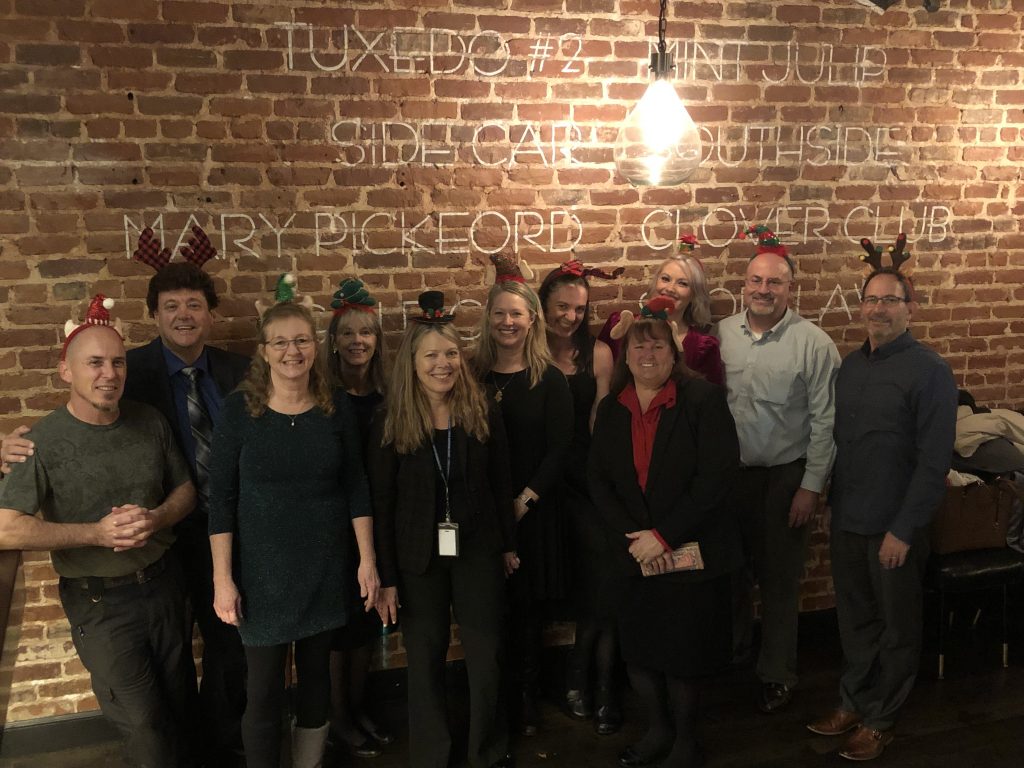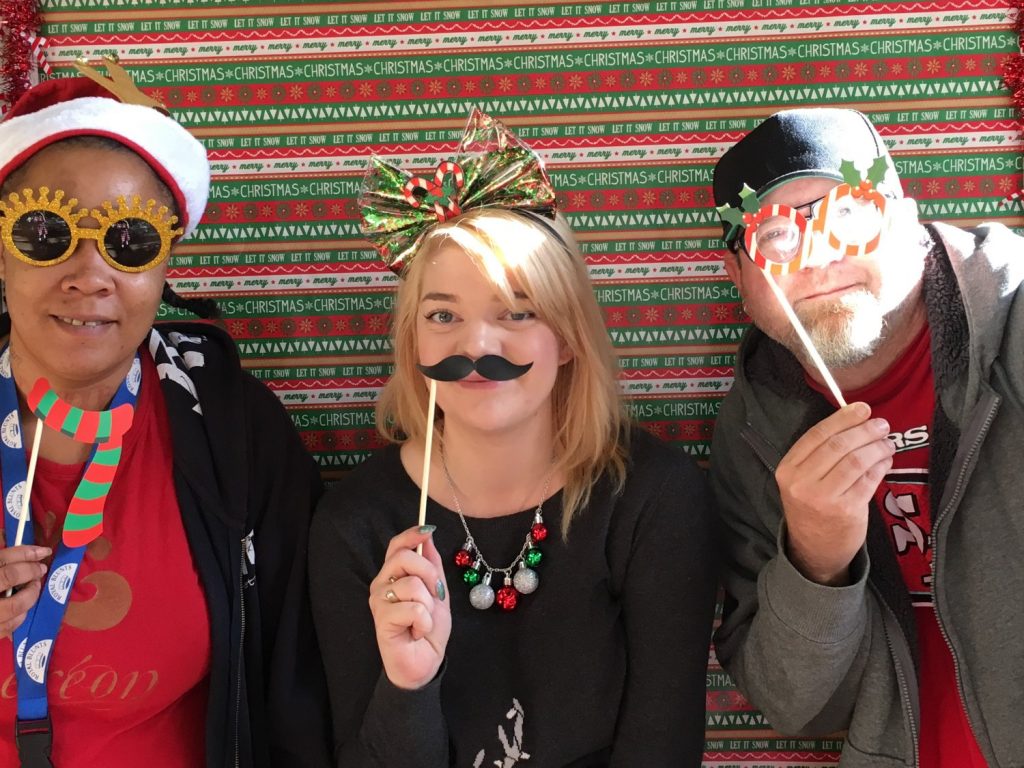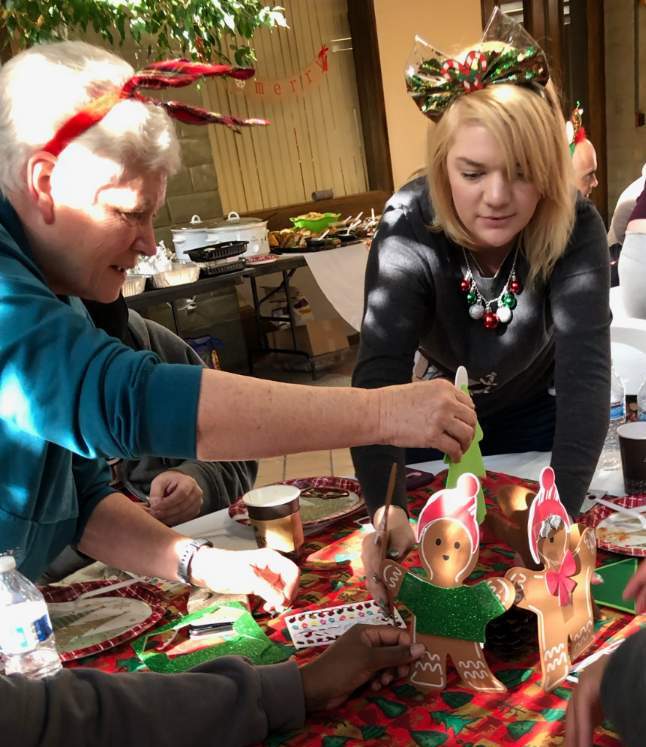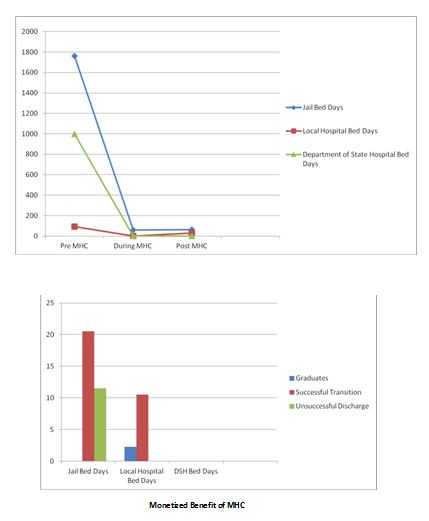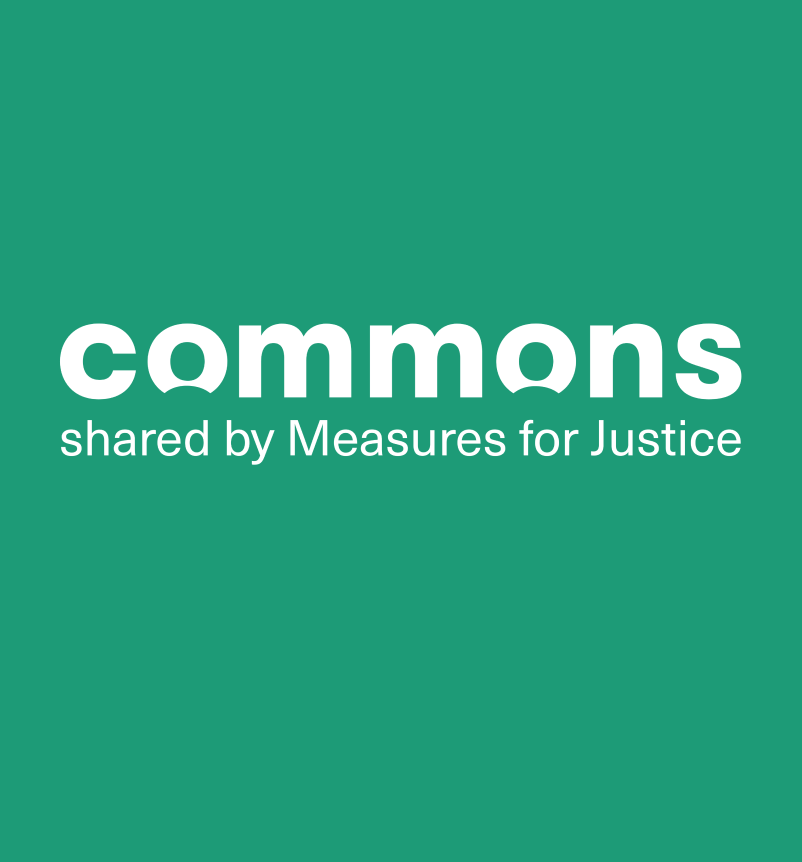(Woodland, CA) – December 19, 2018 – Mental Health Court (MHC) team members celebrated another year of success during the week leading up to Christmas. By holding events for program participants and graduates, the Mental Health Court team hopes to foster a sense of community among Mental Health Court clients and the county employees that they work with. Mental Health Court was founded in 2013 and is a multi-agency collaborative effort that brings together partners from the criminal justice and social services fields. Partners include the District Attorney and Public Defender’s offices, the Court, the Probation Department and Health and Human Services Agency (HHSA). The program serves up to 15 individuals at a given time who suffer from serious mental illnesses and have been charged with felony offenses.
On December 17, all County partners celebrated the holidays at Morgan’s on Main Street. Supervising Deputy District Attorney Chris Bulkeley said, “There are not many occasions where justice partners are all rowing the boat in the same direction to achieve a common goal. Wouldn’t it be nice if there was less bickering and more breaking bread?” The team also bid an emotional farewell to MHC Judge Janet Gaard, who is retiring at the end of the year. Judge Gaard gave heart-felt gifts to each of the team members. “She’s our Mental Health Court champion judge,” said Chief Deputy Public Defender Allison Zuvela. “In 2019, we are looking forward to Judge David Rosenberg taking the baton seamlessly from Judge Gaard.”
On the following day, December 18, team members celebrated with MHC clients during the lunch hour at a MHC holiday party in the County Atrium room. Numerous MHC clients and graduates attended the festive event. After eating delicious food prepared by HHSA staff, Behavioral Case Manager Terri Lipelt coordinated various holiday-themed games to the laughter of everyone attending. “What an amazing way to end the year,” said Probation Officer Stephen Svetitch. “How often does a probation officer, deputy DA, and public defender sit down to eat, laugh and play holiday games with individuals who are in the criminal justice system?”
Participants of MHC enroll in the program for a minimum of 18-months and progress through four phases: orientation and treatment plan development; early recovery; active recovery; and sustained recovery. Progression through the four phases includes increasing days of sobriety, writing a reflective essay at the end of each phase, and consistently participating in treatment. If a participant stumbles along the way, they may have to redo previous phases of the program based on the circumstances—however, the program is designed to allow for second chances. At the end of the program, clients participate in a restorative justice process that allows them to reflect on the harms of their offenses and reconcile with family members and victims.
The MHC program is only able to serve 15 clients due to funding issues. “We hope to add another social worker and probation officer next year to double the clients we can serve,” said Chief Deputy District Attorney Jonathan Raven. “We are looking for grant funding and talking to members of our Board of Supervisors about this and we are cautiously optimistic since our results have been astounding.” During fiscal year 2017-18, of the 19 individuals enrolled in MHC, there was a 97% decrease in jail bed days. Participants spent a total of 1,762 days in jail prior to enrollment and only 61 days in jail after. Hospital bed stays decreased to 0. Prior to enrollment, participants spent 91 days in local hospitals such as 3B North at Woodland Memorial Hospital. Post-enrollment, there were no hospital bed stays among participants. Additionally, prior to enrolling in MHC participants spent 997 days in State mental hospitals, such as Napa State Hospital. After enrollment none of the participants were admitted to State mental hospitals.
Kristi Abbott, the Clinical Supervisor of Forensic Mental Health at HHSA and lead social worker for MHC, has been coordinating many of the events such as the team party and holiday luncheon. Abbott stated, “The team has created a program that provides a sense of community and ongoing support for both participants and alumni. It is so rewarding to see the team members, participants, alumni, and their families all celebrating the holidays together.”
For more information, please visit https://yoloda.org/community-outreach-programs/mental-health-court/
###
